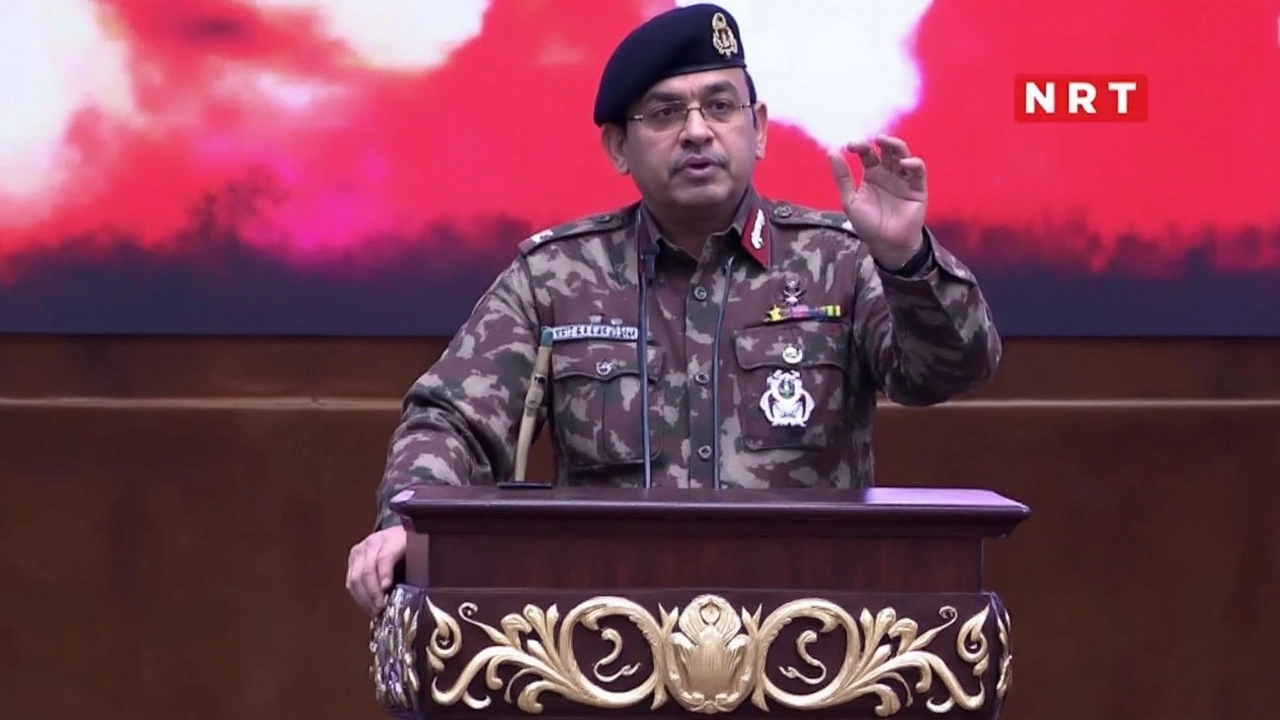
Munir’s Historic Promotion After a Volatile May
In a move not seen in over sixty years, Pakistan’s government has named Army Chief Syed Asim Munir as field marshal—the highest army rank, reserved for historic moments. The decision, made days after bloody skirmishes along the India-Pakistan border in May 2025, signals both his personal triumph and a wider shift in Pakistan's balance of power.
The trouble began after militants attacked Indian forces in Pahalgam, Jammu and Kashmir—an incident India traced back to Pakistan-based groups. India responded with force, and gunfire echoed for several days across the Line of Control. Munir’s command was front and center: state TV carried images of him at border outposts and addressing troops, his tone shifting between religious fervor and fierce nationalism.
For Munir, the crisis was a turning point. Just months earlier, political opponents and civil society groups had slammed him for an intense crackdown on Imran Khan’s PTI party. Military courts saw a flurry of political trials, and many called for limits on army power. But the border clashes changed the narrative almost overnight. Crowds cheered for the army chief, social media flooded with nationalist slogans, and Munir’s religiously-tinged speeches became staples in the news cycle.
Religious Nationalism and Resurfacing Patterns
Munir’s promotion isn’t just ceremonial—in Pakistan, such symbolism carries real clout. Only one other field marshal has walked the halls of Rawalpindi’s General Headquarters: Ayub Khan, who seized power in a 1958 coup and ruled with an iron grip. Munir’s rhetoric, much like General Zia-ul-Haq’s era, ties military might to religious destiny. He rarely appears in public without invoking faith, casting the army as guardian not only of borders but Pakistan’s ideological core.
This renewed military nationalism has sparked worry among democracy advocates. Munir’s rise was coupled with a surge of stories in state media about the need for internal unity and vigilance against “enemies within.” Critics see echoes of past military rulers—when the general’s word was law, politicians served at the army’s pleasure, and dissent got labeled as betrayal.
The backdrop isn’t local alone. The United States, long a major backer of Pakistan’s military, again stepped in during the Kashmir crisis, offering to mediate. New Delhi condemned the move, insisting Kashmir is a bilateral matter. Still, the familiar pattern returned: global powers shield Pakistan’s generals from harsh scrutiny, even as rights groups catalogue abuses at home.
For now, Munir stands as both symbol and strongman. The field marshal’s baton is more than decoration—it marks a shift toward a ‘hard state’ model. Security is the buzzword, overshadowing reforms in areas like the economy or civil freedoms. Civic groups worry that courts, parliament, and watchdogs are shrinking before military dominance. Meanwhile, ordinary Pakistanis face higher living costs, tight media controls, and fewer spaces to challenge the state’s priorities.